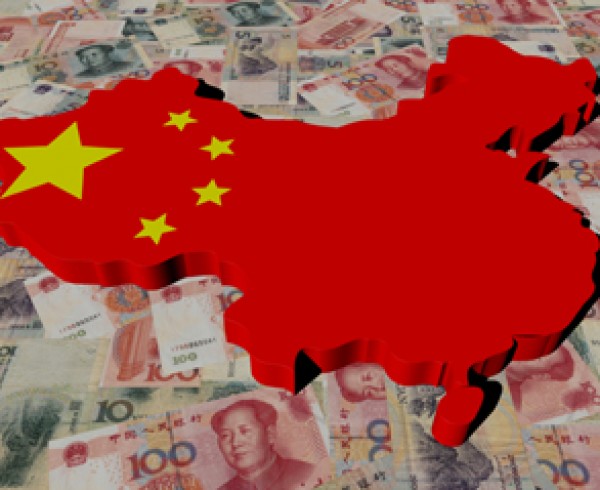
In the wake of the Asian financial meltdown, experts predicted that China would devalue the renminbi. So did traders: Currency forwards priced in a significant devaluation. I didn’t jump on that bandwagon. Indeed, the title of my Sept. 6, 1999 column, “Why China Won’t Devalue,” indicated my contrary call. And the right call it was. The exchange rate of 8.28 renminbi to the dollar hasn’t budged since 1995.
That fixed exchange rate doesn’t suit everyone, however. Led by the U.S., a chorus of countries is loudly demanding that China ratchet up the value of its currency against the dollar. Such a revaluation is intended to make Chinese exports more expensive and less competitive. The Chinese authorities have politely demurred, but most experts think they will eventually succumb to international pressure. The markets agree. Hot money continues to flow into China, and the currency forward markets are pricing in a 5% renminbi revaluation against the dollar during the next year. Once again, I think the experts and the markets will be caught wrong-footed.
I was introduced to the current Chinese currency flap on May 1, 2002, when the Senate Banking Committee held hearings on exchange-rate policy. This was pursuant to a 1988 law requiring the Treasury Department, in consultation with the International Monetary Fund, to determine whether countries like China are gaining an “unfair” competitive advantage in international trade by manipulating their currencies.
Then-Treasury Secretary Paul O’Neill declared that none of our important trading partners had manipulated their exchange rates during the July-December 2001 reporting period. Five follow-up witnesses took the other side. They launched a well-choreographed attack on China’s fixed exchange-rate regime and the 8.28 renminbi/dollar exchange rate. According to them, China was manipulating the exchange rate and the renminbi was undervalued. Consequently, China was an unfair trader. My testimony came last, and I took Secretary O’Neill’s side.
Since those 2002 hearings, foreign mercantilists have pushed revaluation of the renminbi to the front burner and turned up the heat, but with no results. The Chinese authorities refuse to alter the long-standing renminbi/dollar rate. In their eyes a fixed exchange rate, economic growth and stability are all tightly linked together. And in Beijing, stability might not be everything, but without it, everything is nothing. For this reason alone, it’s hard to fathom a renminbi revaluation.
There is, of course, plenty of local and regional history to reinforce Beijing’s views about the dangers of meddling with an exchange rate. Consider Hong Kong, which abandoned its fixed exchange rate and floated its dollar in November 1974. The Hong Kong dollar did not float on a sea of tranquility, however. The volatility reached epic proportions in September 1983 when financial markets and the Hong Kong dollar sank. Hong Kong was in a state of panic, with people hoarding toilet paper, rice and cooking oil.
The chaos ended abruptly on Oct. 15, 1983. That’s when Hong Kong decreed that its dollar would be fixed at 7.8 to the U.S. dollar. The currency remains at that rate today.
Japan is yet another object lesson. Under the Bretton Woods system the yen/dollar exchange rate was fixed at 360. Japan realized rapid growth and stability with this setup, which lasted until 1971.
Since then Japan has been under mercantilist pressure, primarily from the U.S., to ratchet up the yen’s value against the dollar. Tokyo has complied. Consequently, the economy has suffered from strong-yen-induced recessions and hasn’t yet recovered from the enormous deflation of the 1990s. And the mercantilists in the U.S. remain agitated because Japan continues to register large trade surpluses.
Now add to these factors the thoughts of Nobelist Robert Mundell. In July of last year he hosted some of his friends at Palazzo Mundell, a Renaissance villa near Sienna, Italy. When it came to China, I took careful notes. According to Mundell, a renminbi appreciation would cut foreign direct investment, cut China’s growth rate, delay convertibility, increase bad loans, increase unemployment, cause deflation distress in rural areas, destabilize Southeast Asia, reward speculators, set in motion more revaluation pressures, weaken the external role of the renminbi and undermine China’s compliance with World Trade Organization rules. Mundell is not a fan of revaluation.
I recount these points because on October 28, 2004 Beijing announced the establishment of the Mundell International University of Entrepreneurship. It will be located in the Zhongguancun area, the “Silicon Valley of China.” Connect the dots and you get a fixed exchange rate.
Author Steve H. Hanke

0 responses on "Why China Won’t Revalue"